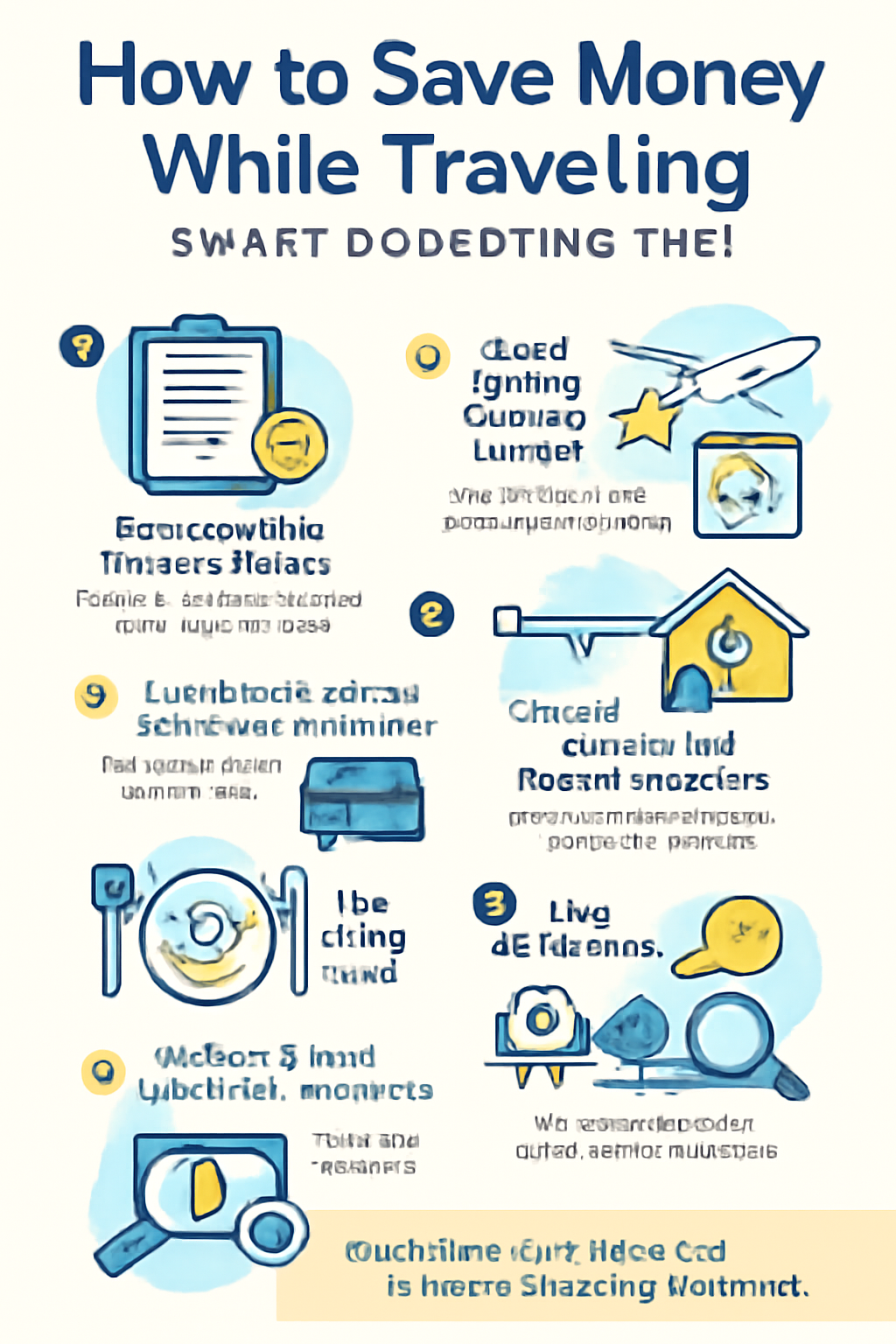Traveling the world can be expensive, but it doesn’t have to be. By making informed decisions and following a few budgeting tips, you can explore new destinations without compromising your financial health. Here’s how you can travel on a budget while still enjoying every moment of your trip.
1. Set a Realistic Travel Budget
The first step to saving money while traveling is to set a realistic budget for your trip. This will help you stay on track and avoid overspending.
- Breakdown Your Budget: Categorize your expenses into flights, accommodation, food, activities, transportation, and souvenirs. This breakdown helps you see where you can cut costs.
- Prioritize Spending: Decide what’s most important to you. Are you willing to spend more on food or a luxury hotel? Knowing your priorities helps you allocate your budget accordingly.
Once you have your budget, track your expenses during your trip to ensure you’re sticking to it.
2. Travel During Off-Peak Seasons
Traveling during peak seasons, such as holidays or school vacations, can lead to inflated prices on flights and accommodations. To save money, try to travel during off-peak seasons.
- Flight Costs: Flights are usually cheaper during off-peak times, such as mid-week days or shoulder seasons (the period between peak and off-peak seasons).
- Accommodation Discounts: Many hotels and vacation rentals offer discounts during low season, which means you can enjoy the same amenities for less.
Researching the best times to visit your destination can save you a significant amount of money.
3. Use Budget Airlines and Public Transportation
Transportation costs can quickly add up, but there are ways to keep them under control.
- Budget Airlines: Look for low-cost carriers that fly to your destination. While they may not offer as many amenities, they can save you a lot of money on airfare. Just be sure to factor in any additional fees for baggage and seat selection.
- Public Transportation: Instead of relying on taxis or ride-sharing apps, opt for public transportation. Most cities have affordable metro, bus, or tram systems that are easy to navigate and cost-effective.
Tip:
Consider purchasing transportation passes that offer unlimited travel within a certain period for a discounted price.
4. Choose Affordable Accommodation
Accommodation can be one of the most expensive aspects of traveling, but there are plenty of ways to save money on lodging.
- Hostels and Guesthouses: If you’re open to a more social environment, hostels and guesthouses can be much cheaper than hotels, offering basic accommodations at a fraction of the cost.
- Vacation Rentals: Renting a room or an apartment through platforms like Airbnb or Booking.com can be more affordable, especially for longer stays.
- Stay with Locals: Websites like Couchsurfing allow you to stay with locals for free, which is a great way to save money and meet new people.
5. Eat Like a Local
Food is another area where travelers tend to overspend. Instead of dining at tourist hotspots, explore local eateries to enjoy authentic dishes at lower prices.
- Street Food: In many countries, street food is not only delicious but also very affordable. From tacos in Mexico to sushi in Japan, street food offers a taste of the local culture at a fraction of the price.
- Markets and Grocery Stores: Visit local markets or grocery stores to buy snacks, fruits, or ingredients to cook your own meals. This is a great way to save money, especially for breakfast or lunch.
Avoid eating in touristy areas, where prices are often inflated. Look for restaurants where the locals eat for the best deals.
6. Take Advantage of Free Activities
Many cities offer free activities that can help you experience the destination without spending a dime.
- Museums and Galleries: Some museums have free entry on specific days of the week or month. Do some research to find out when these opportunities arise.
- Walking Tours: Many cities offer free walking tours led by locals. While these tours are technically free, it’s customary to tip the guide if you enjoyed the experience.
- Parks and Nature: Take advantage of the natural beauty of your destination. Whether it’s hiking in the mountains, visiting a national park, or relaxing at the beach, nature offers free activities that are just as memorable.
7. Look for Travel Deals and Discounts
Before booking your trip, spend some time looking for travel deals and discounts. You can often find sales on flights, hotels, and activities if you know where to look.
- Travel Websites and Apps: Use websites like Skyscanner, Google Flights, or Kayak to compare flight prices. For accommodation, websites like Agoda and Hostelworld can help you find affordable options.
- Discount Sites: Look for coupons and promotions on sites like Groupon, Travelzoo, and Viator for discounted activities and tours.
Setting up price alerts for flights and hotels is another smart way to catch deals as soon as they become available.
Conclusion: Enjoy Your Trip Without Breaking the Bank
Traveling on a budget doesn’t mean sacrificing the quality of your experience. By setting a realistic budget, traveling during off-peak seasons, using public transportation, and taking advantage of free activities, you can enjoy your trip without breaking the bank. With a little planning and some money-saving strategies, you’ll have the adventure of a lifetime while keeping your finances in check.
